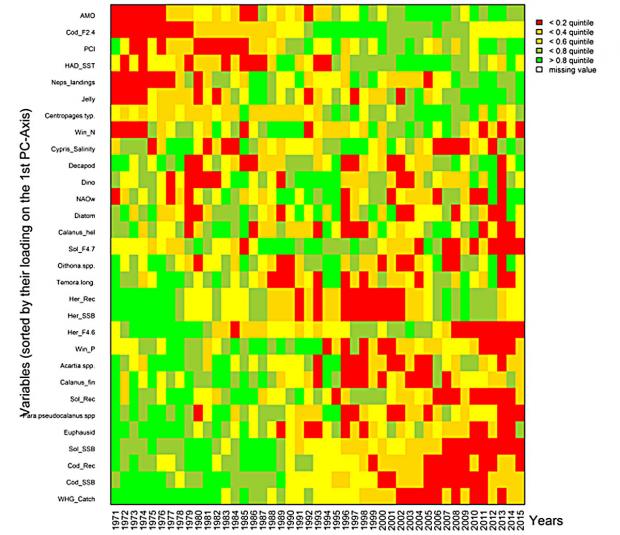The Irish Sea
We are privileged in that the Irish Sea is a data rich region with many of these long term time-series of key abiotic and biotic components available. This is due to the work and efforts of the many organisations and scientists who have helped to setup and maintain these important monitoring programmes. AFBI scientists have been able to compile time-series for the Irish Sea spanning 4 decades (1971-2013).

The analysis of this data highlights that the Irish Sea ecosystem has undergone considerable changes. An increasing trend in sea surface temperature (SST) over the time-series is linked to the positive phase of the Atlantic medial oscillation (AMO) and increasing influence of global warming. During this period declines in cod and sole spawning stock biomass (SSB) have been observed. Nephrops (Dublin Bay prawns) landings have increased over the period related to declining opportunities in other traditional species.
Declines in important zooplankton for fish recruitment have been observed, while concurrent increases in phytoplankton have been linked to possible reductions in grazing pressure by zooplantkon. Meanwhile recent increases in gelatinous zooplankton may be linked to anthropogenic disturbance and climate.

